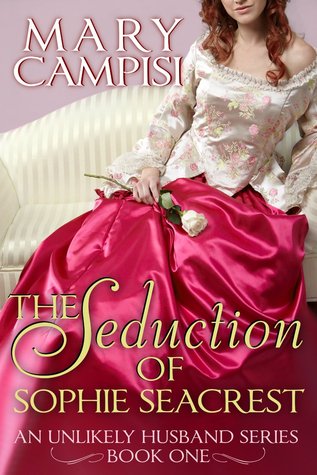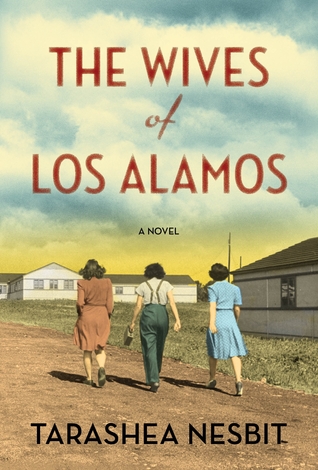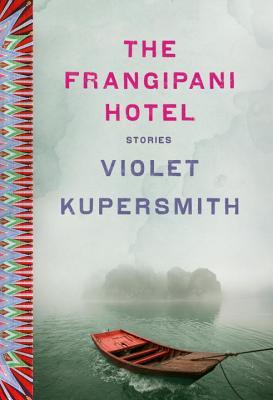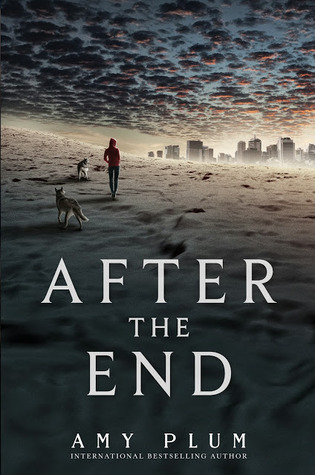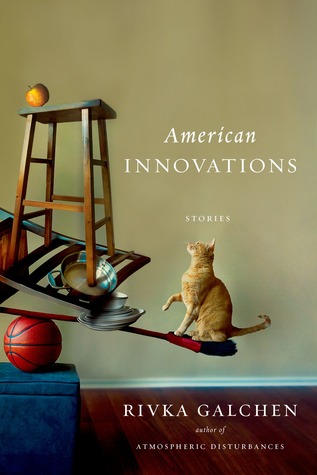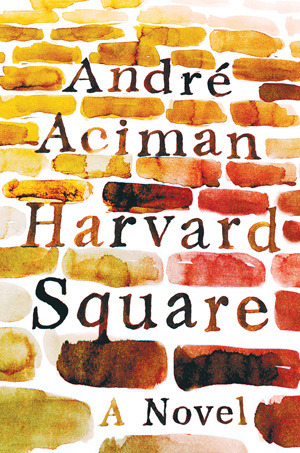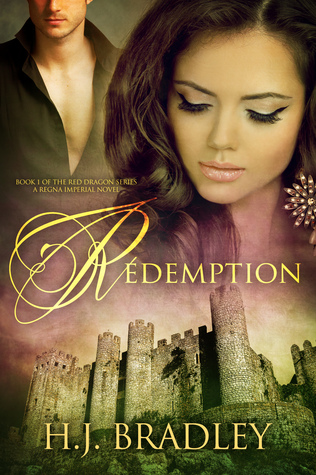Hellooooo out there! Since the last time we've chatted about this, I've knocked out a few more categories in the Popsugar 2015 Reading Challenge. You can view my original progress
here. Since then, I've finished the following categories, and updated a few more that are still to go!
Completed
-A book a friend recommended. My friend Vilhelmina tore through Sarah J. Maas'
A Court of Thorns and Roses a few weeks ago, and when I saw that she'd rated it pretty highly, I said I'd have to read it soon--to which she gave an emphatic
Yes so that we could discuss it! I liked it, a lot, but it left me a little bit nervous about the next book in the series.
-A book that made you cry. This was, unintentionally,
How To Start a Fire. Oh, Malcolm...
-A book you own but have never read. As I intended, I finished this one with
The Martian, reading it after owning it for about six months without ever reading it. It's very realistic science fiction, a great intro to the genre for those who are interested in the concept but find the more space-opera-y stories too out there.
-A book based on or turned into a TV show. Again, as intended, I read
Dead Until Dark, the book that started the series that became the HBO show TrueBlood. One of my absolute favorite books, Neil Gaiman's
Neverwhere, is the novelization of a mini-series of the same name that Gaiman worked on, but I wanted to include all new books in this challenge (with the exception of a book from my childhood) so I had to go for something a little different.
-A
book set somewhere you've always wanted to visit. I hadn't decided on something to fill this category originally, but I've decided to use
The Signature of All Things for it. This boot is set partially in Tahiti, a place I would love to visit--and I disliked the book so much that I figure I might as well get
something out of it, so I'm counting it for this category.
With those out of the way, it leaves a few (well, a bunch) of categories still to be filled...
Still To Go
-A classic romance. I picked up
Anna Karenina at a used bookstore a while back, so I'm going to use that one.
-A book that became a movie. I'll be filling this one with
The Monuments Men, which
has been on my Kindle for ages but I haven't opened yet. I don't
actually read a lot of books that become movies, so this one was a
harder category to find a candidate for.
-A book
written by someone under 30. Oh, this was a hard one to find a
candidate for, because all of the authors I thought were really young
are actually older than I thought! Oi. So, very reluctantly, I have
decided to take up Veronica Roth's
Divergent. I've avoided it until now, but now it seems to have become unavoidable.
-A popular author's first book. I wanted to go with a
big author for this one, and because Terry Pratchett died recently, I've settled on
The Carpet People.
-A book from an author you love but haven't read yet. Well, I absolutely
adore Tamora Pierce, but for some reason I haven't read
Battle Magic yet, so that will fill this category.
-A Pulitzer Prize-winning book. Like pretty much everyone else out there, I'm going to knock this one out with
All the Light We Cannot See.
-A book based on a true story. I think I'm going to go with
Seabiscuit for this one. I think that counts. The "based on" bit confuse me somewhat.
-A
book at the bottom of your to-read list. My to-read list is in a
constant state of flux and doesn't really have a concrete "bottom," so
at some point I'll just pick the most recently added book (which is, by
default, at the bottom) and read that.
-A book your mom
loves. As my mother drunkenly told an Australian tourist while we were
in Venice for my sister's wedding, her favorite book is
The Thorn Birds, so I guess I'll be reading that for this category!
-A
book that scares you. I have no idea for this one, honestly. Horror
books don't actually scare me, so I think I might have to go with some
nonfiction that's terrifyingly true. We'll see where that goes.
-A
book more than 100 years old. Well, common domain books make this
easy, and I think I'll continue my study of the classics with
20000 Leagues Under the Sea.
-A
book you were supposed to read in school but didn't. I was a good
student and read the books I was assigned, and I could only think of one
exception that wasn't an actual textbook:
Affairs of Honor. It's apparently about early congressmen, senators, etc. being bitchy to each other, so it shouldn't be too bad of a read.
-A book with antonyms in the title. I honestly don't know. I'll have to look for something, nothing comes to mind right away.
-A book that came out the year you were born. I looked up a list of books published in 1991 and discovered that's the year that
Outlander was originally published in that year! This is great, because I recently bought the entire series when it was obscenely cheap on Amazon a couple of weeks ago.
-A book with bad reviews. I haven't decided yet on this one, either, but I'm dreading it...
-A book from your childhood. The obvious one that comes to mind is
Harry Potter and the Sorcerer's Stone. This might finally give me the excuse to order that new box set I've been eyeing up...
-A book with a love triangle. I've gotta fill this one with
Endless Knight, Kresley Cole's sequel to
Poison Princess. I loved
Princess (review
here)
, but haven't cracked
Endless yet. But it has
definitely got a love triangle.
-A book set in high school. Pretty sure that
Perks of Being a Wallflower is going to flesh out this category. I kind of hate books set in high school, but
Perks is supposed to be great, so I hope it won't let me down!
-A graphic novel.
Sharaz-de is a graphic novel inspired by
1001 Arabian Nights, and I've been eyeing it up for a while now. Plus, Scheherazade is pretty much my favorite fairy tale ever.
-A book that takes place in your hometown.
Well, despite some Googling, I couldn't find anything that takes place
in Erie, PA, so I'm going with my
second hometown here. I'll be reading
The Dressmaker, which, according to my research, takes place at least partially in Washington, DC.
-A play. I haven't decided on this yet, though I'll probably keep it basic and do Shakespeare.
-A banned book. Well, books in the US are never actually
banned by the government, but according to a
list of frequently challenged books,
The Kite Runner fits this category. I read
A Thousand Splendid Suns, also by Hosseini, several years ago and liked it, so this should be a good contender.
-A book you started but never finished. I swear to year, this is the year I finally take down
Vellum, which I have started
multiple times but have never been able to complete. But this time,
I will do it!
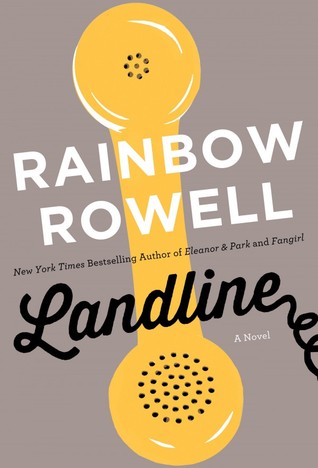 When I went to pull the cover art for this from Goodreads, a book that I recognized popped up under the "Readers Also Enjoyed" section: Isla and the Happily Ever After by Stephanie Perkins. For a moment, I was perplexed; Isla is a decidedly young adult book and Landline, while not explicit, is definitely aimed at a more adult audience. But after a bit of reflection, I saw the connection. Both of these books deal with the building and disassembling of relationships, with life just getting in the way, and of the couple--sometimes one party more than another--striving to make things right, often in each other's absence.
When I went to pull the cover art for this from Goodreads, a book that I recognized popped up under the "Readers Also Enjoyed" section: Isla and the Happily Ever After by Stephanie Perkins. For a moment, I was perplexed; Isla is a decidedly young adult book and Landline, while not explicit, is definitely aimed at a more adult audience. But after a bit of reflection, I saw the connection. Both of these books deal with the building and disassembling of relationships, with life just getting in the way, and of the couple--sometimes one party more than another--striving to make things right, often in each other's absence.